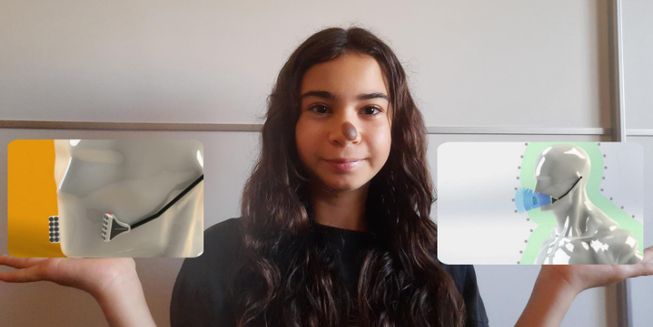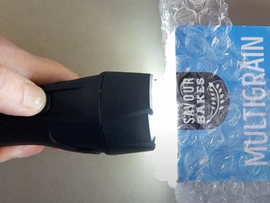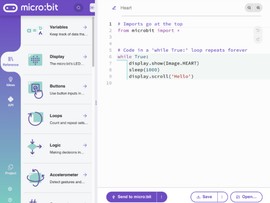Student designs reusable virtual face mask
Jana from the Lebanon designed a reusable virtual face mask to reduce the waste created by disposable masks
Jana’s concept is designed to be worn on the ears and proposes the use of transducers to prevent the droplets produced by talking, coughing, and sneezing from spreading. As Jana’s concept for a mask does not cover the face, it also proposes a solution for better social interaction than a standard face mask.
Jana introduces her idea
Jana’s design would use the BBC micro:bit’s accelerometer, or movement sensor, to detect when the mask is removed and gives a verbal warning through the micro:bit’s speakers. The mask concept also detects and warns when the user is about to touch their face by measuring a change in wavelength signal.
The do your :bit judges were impressed with Jana’s creative thinking and she won the paper prototype category for 8 to 14-year-olds in the Middle East. Jana aimed to solve a problem related to Global Goal 3 Good health & well-being.
The do your :bit challenge is an annual competition which sets young people the challenge to innovate and design solutions relevant to the impacts of the Global Goals that are meaningful to them.

Jana with her designs for the face mask

It is critical to design things that matter for our planet and for our families.

Jana, winner in the 2021 8 to 14-year-olds paper prototype category for the Middle East.
Children and young people innovating with technology
The do your :bit challenge adds social purpose to digital learning and allows students to apply their digital skills to real world solutions. All projects and lesson resources are available for free and entries can be submitted into two age-range categories, 8 to 14-year-olds and 15 to 18-year-olds. 8 to 14-year-olds can submit either a paper prototype or working micro:bit solution.
Read about all of this year’s winning entries.
The next do your :bit challenge opens in early 2022, you can find out more about the challenge and access Global Goals project resources and lessons here.

